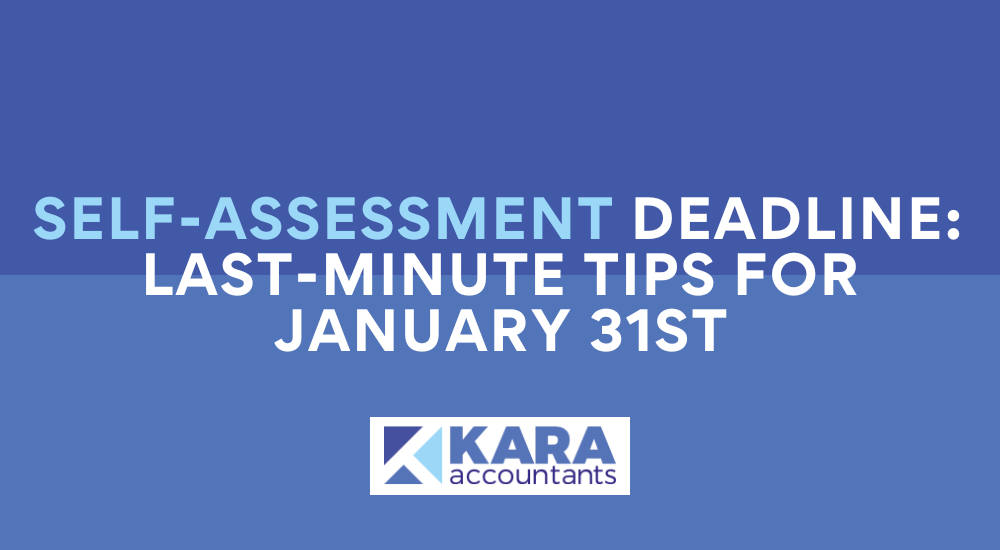
Self-Assessment Deadline: Last-Minute Tips for January 31st
January 31st is a crucial date for millions of taxpayers in the UK—the self-assessment tax return deadline. If you’re feeling the pressure to get everything sorted before the clock runs out, don’t worry! Here are some last-minute tips to help you meet the deadline and avoid unnecessary stress or penalties.
1. Gather All Your Paperwork
Before you sit down to complete your self-assessment, make sure you have all the necessary documents ready. These may include:
- P60 or P45 forms
- Invoices or receipts for income and expenses
- Bank statements
- Dividend certificates
- Records of any income from property, investments, or freelance work
Having everything in one place will save you time and reduce errors.
2. Check Your HMRC Account Details
Log in to your HMRC online account to ensure your details are up to date. If you haven’t already registered for online self-assessment, it’s too late for this year—you’ll need to file by paper next year. For now, ensure you can access your account to submit your return and make any payments.
3. Use HMRC’s Online Resources
If you’re unsure about any part of the process, HMRC offers detailed guides and FAQs on their website. Their free online resources can clarify questions about allowable expenses, tax bands, or how to declare certain types of income.
4. Double-Check Your Allowable Expenses
One of the easiest ways to reduce your tax bill is by claiming allowable expenses. These may include:
- Travel costs (e.g., mileage or public transport for business purposes)
- Office supplies
- Professional subscriptions
- Home office costs (if applicable)
Make sure you’re claiming everything you’re entitled to, but don’t overclaim—it could trigger an audit.
5. Don’t Leave It to the Last Minute
Filing your return at the eleventh hour increases the risk of errors. Start as soon as possible, so you have time to correct mistakes or troubleshoot any issues that arise. Remember, the HMRC system can become overloaded on the final day, leading to potential delays.
6. Pay Your Tax Bill on Time
Filing your return is only half the battle—you’ll also need to pay any tax due by January 31st. Late payments incur penalties and interest, so it’s crucial to plan ahead. If you can’t pay the full amount, contact HMRC to discuss payment plans or “time to pay” arrangements.
7. Check for Common Errors
Before submitting, review your return for common mistakes such as:
- Incorrect personal details
- Missing income sources
- Claiming unverified expenses
- Forgetting to include payments on account (if applicable)
Accuracy is key to avoiding future headaches with HMRC.
8. Keep Records for Future Reference
Once you’ve filed your return, keep a copy of it along with any supporting documents. HMRC requires you to retain these records for at least five years, and having them handy can make next year’s filing much easier.
9. Seek Professional Help If Needed
If you’re overwhelmed or unsure about your return, it’s worth reaching out to a professional accountant. Even at the last minute, they can help ensure your filing is accurate and compliant.
10. Avoid Penalties at All Costs
Missing the January 31st deadline results in an automatic £100 fine, even if you have no tax to pay. Additional penalties apply for prolonged delays or inaccuracies. Filing on time is the simplest way to avoid unnecessary costs.
Filing your self-assessment tax return may not be the most enjoyable way to start the year, but getting it done on time will give you peace of mind and help you avoid penalties. With these tips, you can tackle the process efficiently and accurately. Remember: January 31st comes around every year, so consider setting up reminders or starting earlier next time for a smoother experience!
If you’re struggling, don’t hesitate to contact us!

This Post Has 0 Comments